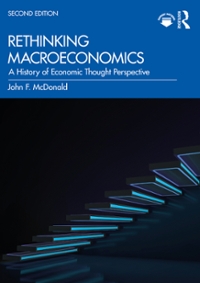Question
Banks forex collusion; auto sector 'after market': Competition Commission briefing Economic Development 21 February 2017 Chairperson: Ms E Coleman (ANC) Meeting Summary The Competition Commissioner
Banks forex collusion; auto sector 'after market': Competition Commission briefing Economic Development
21 February 2017 Chairperson: Ms E Coleman (ANC) Meeting Summary
The Competition Commissioner gave a briefing on the exchange rate/currency trade collusion investigation. The investigation emanated from information that was already in the public domain as well as investigations that were ongoing in Europe, UK and the US on the subject matter. The Commission received some information from various sources indicating that there was some illegal trading involving the rand and the dollar that was subject to collusion, and so in April 2015, an investigation was officially launched. The Commission monitored the situation very closely, and started talking to some of the banks without investigations being carried out to seek an understanding on how far the conduct has gone and whether SA has been affected. People and institutions that were involved were then given the opportunity to come clean without prosecution through its corporate leniency policy which provides for persons or institutions that come forward, to receive immunity. The collusion was taking place largely through a trading platform owned by Reuters, where bidding and offers were taking place, and on another platform owned by Bloomberg, to seek to coordinate pricing.
Initially, the Commission started with just a few banks and then expanded the scope of the investigation, so through the investigation process the Commission received a leniency application from Barclays/ABSA which cooperated and provided more information on the activities, and there is a conditional agreement with them for immunity but this is dependent on the extent of its cooperation with the Commission. As a result, the Commission is now working with Citibank, who are relatively small in SA and therefore would have played a small role in the collusion. Citibank has agreed to testify for the Commission, as of yesterday the agreement was filed with them at the Tribunal which includes an admission of guilt, and fine of about R69.5 million, which constitutes 4% of its South African turnover. The case has now been referred to the Tribunal, and the Commission is expecting to hear the answers from the banks. The SA banks involved included Standard Bank, Investec and ABSA. The Commission has also been working closely with the international counter-parts as the investigation unfolds, and looking at the same witnesses so it was very important that there is coordination so that investigations are not compromised.
Members asked the Commissioner questions about its relationship with the other competition commissions around the world; how widespread the communication is with the other commissions; whether these activities extended illegal profits to the bank financial and equity partners, as well as to their international partnerships or other banks; how the Commission was affected knowing that the banks continued with these activities whilst it
Page 3 of 4
knew what was going on; when the investigation was finalized; what caused the Commission to announce the referral to the Tribunal; which banks have been offered leniency; was Standard Bank and Investec given the same opportunity as Citibank; if there are any other settlements other than the R69.5 million Citibank settlement and the amounts; if the collusion affected the exchange rate of the rand at all; if individual clients were harmed; how the Commission will be able to determine the extent of that harm; how through legal instruments the Commission will ensure these activities are prevented in future, and what legal tool can government put in place for these banks to pay affected communities; and if other banks might also be involved.
The Commission also spoke about the work it is doing in the auto sector where the Commission identified a problem emanating from a number of complaints received about the 'after-market' in the auto sector. This is the market that exists after buying a car, when you need to service it. The Commission found that this market is closed, because there are exclusive agreements that restrict where you may service the car as these services can only be done by authorized dealerships. Although they are independently owned, they are branded, more like franchises of the manufacturers, and this is where you also buy spare parts for the car. This is enforced through warranty conditions and sometimes through conditions by insurance companies. This has a significant impact on SMMEs because their people who could be running workshops and servicing cars and actually own these businesses and qualify to do the work but they are pushed out of the market. The Commission met with the auto industry and the DTI and there were no justifiable answers to this problem. It will be meeting with the industry players on 17 March to try and resolve the issue. Members asked the Commissioner asked which legislation is going to be amended or is already in the pipeline to curb unfair competition and cartels within industries.
Source: https://pmg.org.za/committee-meeting/23994
Question 1
Explore the intricate dynamics of cartel operations by examining the mechanisms through which collusion and anti-competitive practices occur. Further explore the challenges faced by the Commission in coordinating with international counterparts and discuss the measures taken to address the illicit activities.
Step by Step Solution
There are 3 Steps involved in it
Step: 1

Get Instant Access to Expert-Tailored Solutions
See step-by-step solutions with expert insights and AI powered tools for academic success
Step: 2

Step: 3

Ace Your Homework with AI
Get the answers you need in no time with our AI-driven, step-by-step assistance
Get Started


